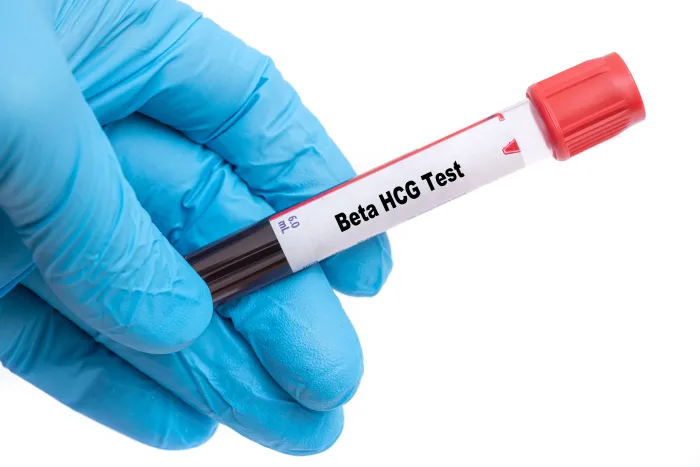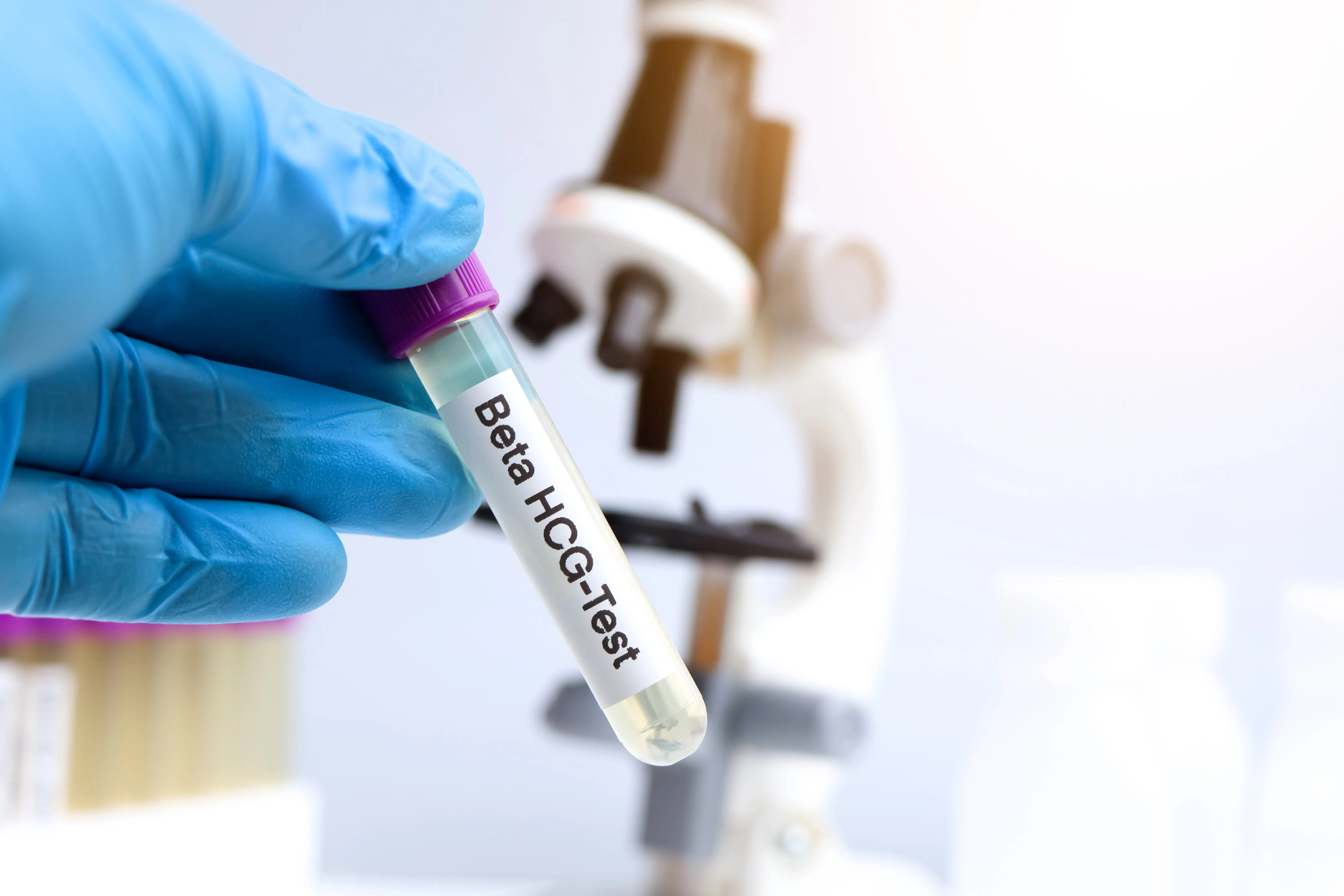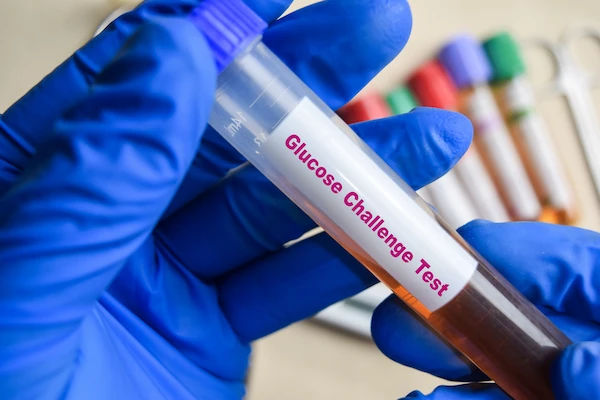Post-Menopause and High Beta hCG: What Senior Women Should Know?

Written by Dr. Rohinipriyanka Pondugula
Reviewed by Dr. D Bhanu Prakash MBBS, AFIH, Advanced certificate in critical care medicine, Fellowship in critical care medicine
Last updated on 11th Aug, 2025

Most women think of beta hCG (human chorionic gonadotropin) as a pregnancy hormone, but this chemical marker can also play a crucial role later in life. For senior women, especially those past menopause, the presence of hCG in a blood test can seem baffling at first, after all, pregnancy is no longer a factor. However, understanding the non-pregnancy uses of this hormone, and when elevated levels might indicate a health concern, is important for women over 55. The beta hCG test for seniors is a rare but valuable tool in specific medical situations. It can signal hormonal changes, detect tumours, or support ongoing monitoring in cancer care. In this article, we’ll walk you through why doctors may recommend this test for older women, what the results mean, and how Apollo 24|7 makes the testing process simple and trustworthy.
What Is Beta hCG?
Human chorionic gonadotropin (hCG) is a hormone mainly produced during pregnancy. It's secreted by placental cells and detected by standard pregnancy tests. However, hCG also exists in other biological contexts, albeit at much lower levels. Some tissues, including the pituitary gland, can produce small amounts of hCG even in non-pregnant individuals. In non-pregnant and post-menopausal women, the appearance of beta hCG in blood tests is unusual and may suggest several different causes. That’s why the beta hCG test for seniors is used as a diagnostic tool in very specific circumstances.
Why Might a Senior Woman Need a Beta hCG Test?
Post-menopausal women are not expected to have elevated levels of hCG. So when a doctor orders this test for a senior, it usually reflects a deeper investigation into unexplained symptoms or to rule out serious conditions.
You might be advised to take a beta hCG test if you have:
- Unusual post-menopausal bleeding
- Pelvic pain or a sense of fullness
- Persistent fatigue or unexplained weight loss
- A personal history of hormone-related tumours
- Elevated tumour markers in other tests
- In these scenarios, the beta hCG non pregnancy reading acts as a supportive marker, helping to confirm or eliminate possible causes.
Normal vs. Elevated Beta hCG Levels in Post-Menopausal Women
In healthy, non-pregnant, post-menopausal women, beta hCG levels are generally under 5 mIU/mL. However, slight elevations (up to 14 mIU/mL) can occasionally be due to benign pituitary production. Levels consistently above 14–20 mIU/mL are considered abnormal and usually require further investigation. A single high reading does not confirm a diagnosis, but it does indicate the need for more tests.
Common Reasons for High Beta hCG in Seniors
Some of the common reasons for high beta hCG in seniors are:
1. Pituitary hCG Production
Post-menopause, oestrogen and progesterone levels decline significantly. As a result, the pituitary gland can start secreting low levels of hCG. This is a harmless, age-related hormonal shift and usually doesn't require treatment. However, doctors typically confirm pituitary origin by comparing hCG with other hormone levels such as LH and FSH. If the elevation is mild and stable, it may simply be monitored over time.
2. Gynaecological Tumours
Certain ovarian or uterine tumours may secrete hCG. These types of growths are rare but can be aggressive, which makes early detection important. If a senior woman presents with symptoms like pelvic pressure, irregular bleeding, or bloating, a beta hCG test may be added to help rule out such conditions.
3. Gestational Trophoblastic Disease (GTD)
Although GTD is most common in reproductive-age women, rare cases have been reported decades after a pregnancy. In very rare instances, residual trophoblastic tissue can cause high hCG levels post-menopause. If suspected, imaging studies and histopathology are required for diagnosis.
4. Lung or Gastrointestinal Tumours
Some non-gynaecological cancers, including certain lung, liver, stomach, or bowel tumours, can produce beta hCG. These tumours are referred to as “ectopic hCG-producing tumours.” In such cases, hCG acts as a tumour marker, helping doctors monitor disease activity or recurrence.
5. Kidney or Bladder Cancers
A small subset of urogenital cancers may also produce beta hCG. If you're experiencing urinary symptoms, unexplained haematuria (blood in urine), or pelvic discomfort, your doctor may explore this angle using beta hCG testing in combination with scans and cytology.
What Does the Beta hCG Test Involve?
The beta hCG test is a standard blood test requiring a small sample drawn from a vein in the arm. It is quick, minimally painful, and does not usually require fasting unless combined with other tests. Results are typically available within 24 to 48 hours. Based on the outcome, your doctor will discuss whether further testing is needed or if the result can be attributed to benign hormonal variation.
How to Prepare for the Test?
Here’s how senior women can prepare:
- Inform your doctor about any hormone replacement therapy (HRT), as this may influence hormone levels.
- Mention prior cancer history, even if the treatment occurred years ago.
- No dietary changes are typically needed unless your doctor is ordering other fasting tests.
- List all current medications, including over-the-counter supplements, as some may interfere with hormonal readings.
What Happens If the Result Is High?
If your beta hCG levels are higher than expected, your doctor will:
- Repeat the test to confirm the finding and rule out laboratory errors.
- Order additional hormone tests, such as LH, FSH, and estradiol, to interpret the hormonal profile.
- Recommend imaging such as transvaginal ultrasound, pelvic MRI, or CT scan to assess for any abnormalities.
- Refer to a specialist such as a gynaecologist, oncologist, or endocrinologist if necessary.
- Sometimes, there may be no obvious cause. In such cases, the hCG level is monitored periodically, especially if it remains below a concerning threshold.
Book Apollo Cancer Checkup Advance Female
Booking Your Beta hCG Test Online with Apollo 24|7
Apollo 24|7 offers an easy and secure way for women to book diagnostic tests online, including those not routinely prescribed. Seniors can benefit from home sample collection, accurate results, and fast reporting.
Here are some relevant options available:
- Beta hCG - Serum Test: Ideal for non-pregnancy testing in post-menopausal women.
- Apollo Senior Citizen Health Check Advance - Female: A complete health profile for women aged 60+, including hormone markers, CBC, liver and kidney function.
- Apollo Cancer Checkup Advance Female: A comprehensive panel that may include beta hCG along with CA-125, CEA, and AFP to assess for cancer risk.
Booking is simple:
- Visit Apollo 24|7’s test listing page
- Select the appropriate test
- Choose a home sample collection slot
- View your results securely online
Get Your Health Assessed Here
Conclusion
The beta hCG test for seniors may be unfamiliar to many women past menopause, but it serves as an important diagnostic tool in modern medicine. From identifying rare tumours to differentiating pituitary hormone secretion, this test offers clarity when symptoms are vague or concerning. The presence of beta hCG non pregnancy is not always a sign of something serious, but it should never be ignored. If you’ve experienced unexplained bleeding, pelvic discomfort, or abnormal scans, your doctor may recommend this test as part of your diagnostic journey. With Apollo 24|7, accessing timely testing and results is easier than ever. Take control of your health, stay informed, and work closely with your care team to ensure peace of mind in your post-menopausal years.
Get Your Health Assessed Here
₹999(₹2497)60% off





